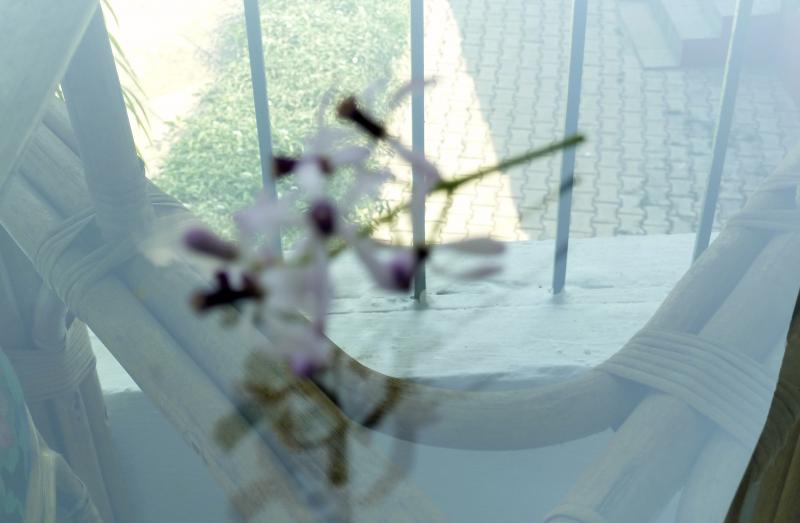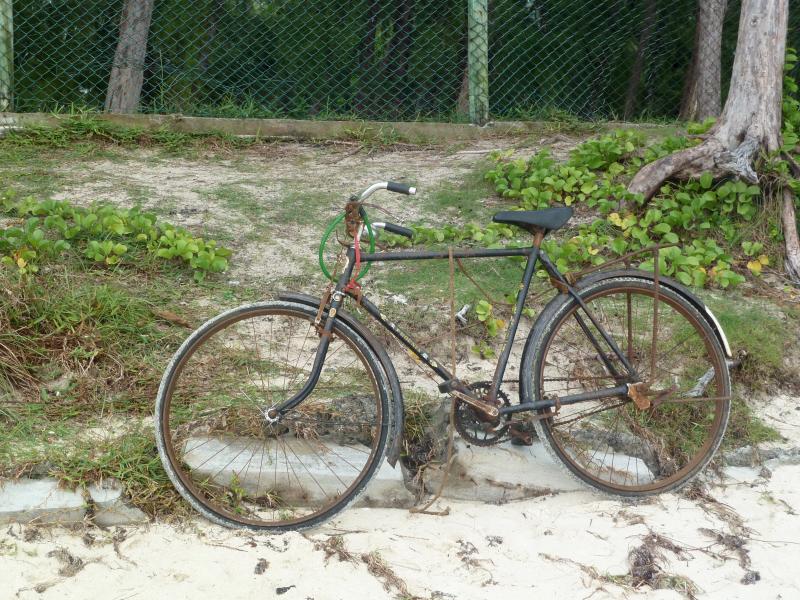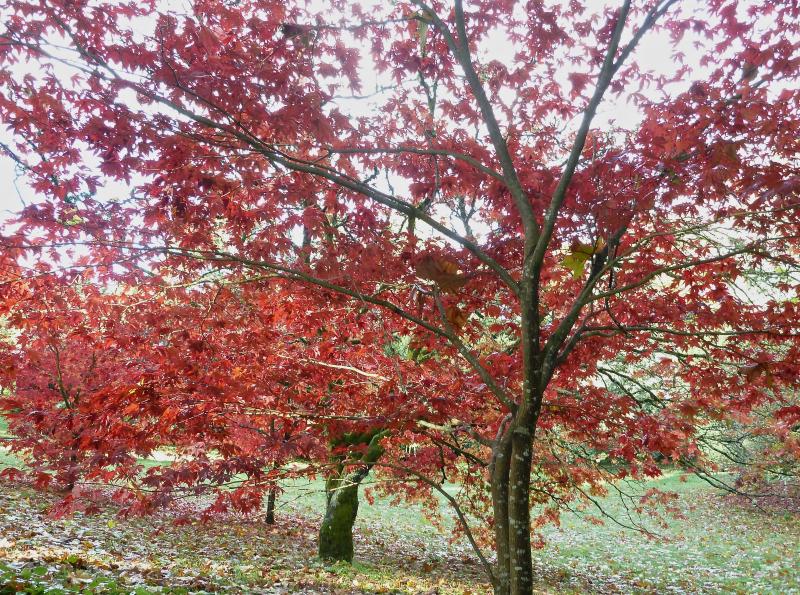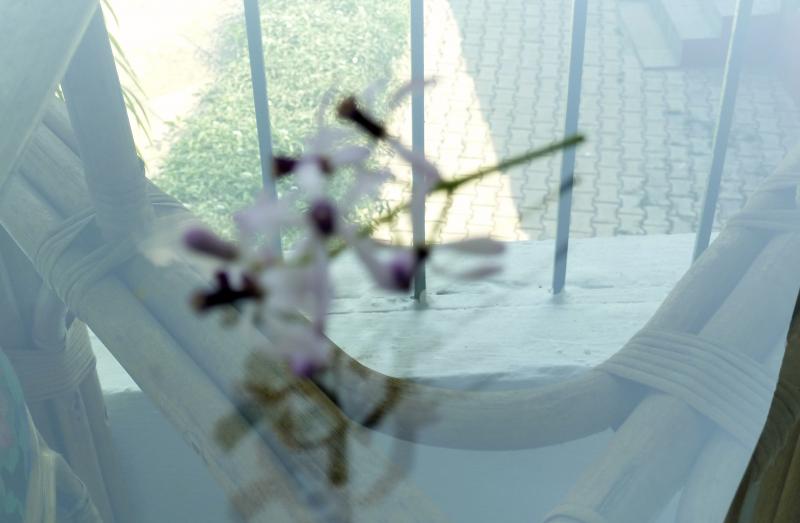Summer to Autumn, Autumn to Winter the period before things stabilize into predictable patterns, or what they are going to be like for a while- at least until the next seasonal change starts to shake the air- people like me become restless and questioning. Who am I, where do I fit in, where do I belong? Is the world changing faster than ever or am I imagining it; oh, it must be because of falling temperatures and leaves turning…

My father wearing an elegant suit. This picture was taken in the Indian High Commissioner’s residence in Muthaiga, Nairobi. My father served as High Commissioner between 1964-68
But this season, which has brought seismic shock waves to those of us residing in Europe, the restlessness and questioning seem to be everywhere. My friends look strained and worried as though they have have sighted a cloud which has crossed the horizon and might even blot out the sun, or even presage apocalyptic change. With a seemingly endless tide of humanity crossing the waters, with the threat of terrorist attacks hanging over us, many can’t help wondering for how much longer the familiar patterns of life will continue. Will we have to change our notions about national values and culture and concede that the refugee crisis is about to challenge almost all norms we have come to take for granted. As a concept, the idea of British values has become a quaint notion, one that is at odds with more urgent demands. Soon it will have gone the way of the dodo. I never once imagined when I decided to live in this country that I’d be faced with such an existential crisis.
Englishness has become an irrelevancy.
Kate Fox’s Watching the English, published just 10 years ago reads like a Baedekar that you might pick up at an antiquarians.
Fox makes one convincing argument for a commonly held view about the basic malfunction in the English character – dis-ease or lack of ease with oneself and one’s fellows: a kind of autism which compels the English to duck into their castles, gardens, shield themselves with social opaqueness and the offer to put on the kettle, all of which have become standard comic fodder as well as evidence of emotional constipation.
But like all historical processes, the evolution of Englishness defies neatly tied up endings.
If only history provided closures we could have the English/British admitting to greed, mendacity, triumphalism, aggressive evangelical conviction puffed up by an endemic feeling of superiority over almost every other nation. Listen, can we now say we are sorry? We took over your country and treated it as our plaything, our pet project, through which we spectacularly increased our wealth, built our country piles and embellished our lifestyles without a thought for the labouring poor in our colonies?
We went even further- we exported the labouring poor by press-ganging them to be shipped to Fiji, East Africa, Trinidad, Malaysia and other far-off places where they never saw their kin again. There they built railways, cut sugarcane and worked in factories, which in turn created the wealth that built our mansions in the Strand.
We had qualities of aggressiveness, toughness, resilience. We had conviction and determination when our fledgling aspirants to nabobdom were wiped out by black fever, dysentry and malaria, to lie in forgotten graveyards in Calcutta and mofussil towns. Most of all we had a gigantic sense of our self-worth in comparison to the uncivilised of the rest of the world.
By some miracle this breathtaking confidence- instilled in governors and soldiers like Henry and John Lawrence by the school of knocks and muscular Christianity- didn’t mutate into a fascistic creed, but also carried strains of compassion and empathy. In India we call it mai-baap: mother father/paternalistic/maternalistic with connotations of feudalism, to which South Asians instinctively respect and attach themselves. In Punjab the Lawrence brothers grafted this on to their Christian values and succeeded in doing what was “best for Punjab”. They wrested governance from the warring relatives of the great Maharajah Ranjit Singh and quickly established a state that acted as an effective buffer against Russian and Afghan ambitions. A Punjab that was progressive became the nursery of the middle class with its job opportunities in irrigation, education, law, civil engineering and Railways. Thousands of young men went to England to study (the Inns of Court already had many Indians by the 1860s), among them my grandfather who crossed the Black Water to qualify as a Barrister and had a flourishing practice for years. His sons became lawyers, civil servants and nearly all his daughters went to university and taught (there were ten children). There were opportunities even in the new state-of-the-art Forestry Department, but the logs were shipped to England for railway sleepers. Yes, Punjab was safeguarded in many respects, but the little Raja of Lahore, who succeeded the Lion of the Punjab Ranjit Singh, was whisked off to England and encouraged to become a Christian and part with his magnificent Koh-i-Noor as a “voluntary” gift to the Empress. (But the diamond itself was war booty in one of the many wars against the Afghans!)
Black and white is actually a sort of porridge, a mish-mash of good and bad motives and results. As Fox says, “perhaps the degree of acculturation demanded (by immigrants from former colonies) should match that which we achieved as uninvited residents in their cultures. Of all people, the English are surely the historically least qualified to preach about the importance of adapting to their host nation’s culture, manners and mores….whenever we settle in any numbers, we not only create pockets of utterly insular Englishness, but often to impose our cultural norms and habits on the local population.”

My father on the right with my mother and a friend. He is wearing his favourite Harris tweed jacket with worn patches at the elbow. They have just finished playing 18 holes at the Delhi Golf Club.
But the English did not always “impose” their culture- many Indians admired their style, their swagger, their habits and tried- and often succeeded- in copying (or aping, depending on your political slant) them. Even the standoffish “negative politeness” (p.147) was attractive to people who came from an excessively curious, excitable, noisy culture when your business is everyone’s business and garrulousness is tolerated. My father cultivated the English style, in spite of various indignities and insults by the colonials. Fox quotes Orwell, “the gentleness of English civilization is perhaps it’s most marked characteristic.” Perhaps true in England itself, but not prominent in his Burmese Days. How, in England until the recent past, did gentleness feature in attitudes to the Irish or blacks?
However, what my father and others admired most was justice and fairplay as exemplified in cricket, which he played. Punctuality was another trait much aspired to in a country that existed on Indian Standard Time.
Two other aspects of English culture were their sartorial style (not made much of by Fox) and love of words. My dad was one of the most under-statedly elegant men in Delhi, conforming to the “uniform” of the English professional gentleman- Harris tweed with scuffed leather patches, ties from Turnbull and Asser in plain silks or diamond patterns, leather brogues, tailored grey flannels for winter and crisp white duck for summer. His socks were plain black or Argyll and he liked Shetland or lambswool sweaters. His suits were from Simpsons or custom made.
He valued order and civility, which he perceived in England. The rumpled white handwoven pyjamas and long shirts of the studiously patriotic male were anathema.
He wrote beautiful prose and knew great chunks of Shakespeare and poetry.
Out of Kate Fox’s list at the end of the book he adopted Humour, Moderation, Empiricism and Common-sense ( traits, once universally admired, now found in the Museum of Slow Living conclave). He was also class conscious, poking fun at social clumsiness and pretension and very very keen on Fairplay, Courtesy and Modesty, which probably qualifies him as being a reluctant, honorary, extremely dated Englishman.






























